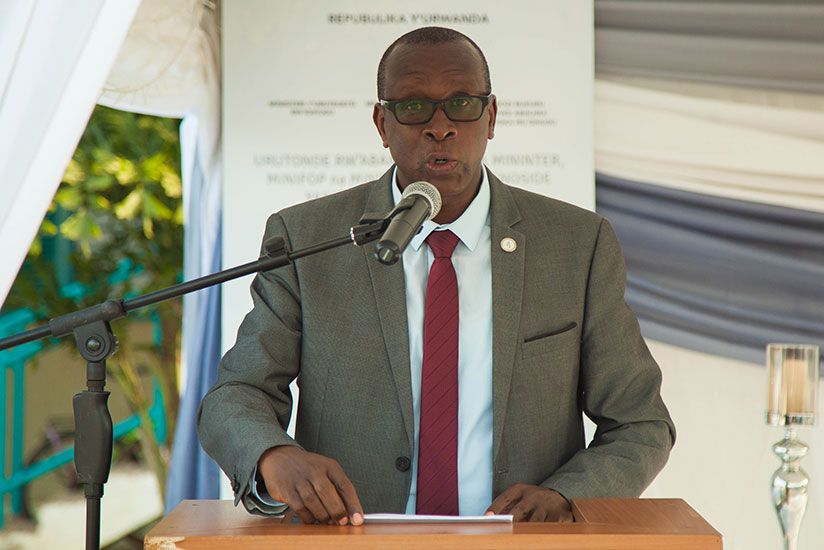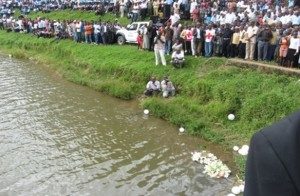
CNLG, Ibuka urge UK judiciary to respect Rwanda’s judicial system.
By Emmanuel Ntirenganya, The New Times.
The decision of the High Court of Justice of England and Wales ruling out the extradition of five genocide suspects for trial in Rwanda is akin to endorsing impunity by harbouring the suspects, the National Commission for the Fight against the Genocide (CNLG), and the umbrella of genocide survivors’ organizations (Ibuka) have stated.
The institutions were reacting to the court’s judgment which decided not to extradite Emmanuel Nteziryayo, Vincent Brown (aka Bajinya), Charles Munyaneza, Celestin Mutabaruka, and Celestin Ugirashebuja, all suspected of participating in the 1994 genocide against the Tutsi, under grounds that they would not get fair justice once returned to Rwanda for trial.
CNLG Executive Secretary, Dr. Jean-Damascène Bizimana told Sunday Times that the court’s decision is against justice and is based on wrong reasons because there is independent and professional justice in Rwanda.
“It is a decision that overlooks that the International Criminal Court Tribunal for Rwanda (ICTR), and many countries including USA, Canada, Norway, Netherlands, and Sweden sent genocide suspects to Rwanda and they are getting justice meeting international standards,” he said.
He cited Canada which extradited Leon Mugesera (who recently, received a life sentence for his genocide crimes), The Netherlands brought back Jean Baptiste Mugimba, and Jean Bosco Iyamuremye; USA which returned Prof. Leopold Munyakazi, among others. ICTR handed over Jean Uwinkindi, Ladislas Ntaganzwa, and Bernard Munyagishari.
To avoid impunity, Bizimana requested the UK to comply with international convention for tying genocide suspects either by extraditing the suspects fled to its territory, or try them in its courts.
Speaking to Sunday Times, Ibuka Executive Secretary, Naphtal Ahishakiye, said that 23 years after the Genocide against the Tutsi, Rwanda built its institutions including its justice sector. He said the UK court’s decision is perceived as complicating justice process and supporting genocide perpetrators.
“Rwanda has all it requires to deliver standard justice such that the genocide suspects should be brought here where they committed crimes so that both them, and the people against whom they committed the crimes get justice,” he said.
Talking about Gacaca courts, Ahishakiye said that this is Rwandans’ particular home-grown initiative that enabled rapid and laudable justice delivery by engaging the people who witnessed the crimes, observing that those who implemented it were chosen and trained people of integrity.
In relation to two of the men (Mutabaruka and Nteziryayo), the judges at the court said that they had concluded they should not in any event be returned as they had each been the subject of earlier criminal proceedings in their absence in Rwanda, conducted by Gacaca courts, which the judges said were not a competent judicial system.
“In respect of the other three men (Brown/Bajinya, Munyaneza and Ugirashebuja) we have concluded the Government of Rwanda should have a final opportunity to give firm and reliable undertakings to put in place conditions which would reduce the risk of unfair trial, so that they may lawfully be returned,” they said.
The charges against the suspects
Vincent Brown is charged with establishing and supervising the manning of roadblocks in Rugenge (Kigali) and near to Kibihekane School in the North-West of Rwanda where killings took place. He is said to have participated in the killings of Dominique, Leandre in Rugenge, Charlotte Kamugaja and baby in Rugenge.
In the case of Charles Munyaneza, it is alleged that as the Bourgmestre of Kinyamakara in Gikongoro Province (current Nyamagabe District), he encouraged others to kill Tutsis, chaired meetings and organised roadblocks. Other allegations are that he took part in the looting of a property and he punished those who looted without killing the owners first; he also led a number of attacks over some days on Ruhashya over the Mwogo River which killed thousands of Tutsis.
For Emmanuel Nteziryayo, the former Bourgmestre in Mudasomwa commune (in the current Southern Province), it is alleged against him that he held meetings with conseillers and gave them guns, told them to set up roadblocks and to kill Tutsis. In addition, he is charged of telling people that Tutsi bodies should be hidden by being buried.
The allegations against Celestin Ugirashebuja is that while he was the Bourgmestre of Kigoma commune, he urged Hutu to kill Tutsis.
He gave instructions that certain Tutsis were to be tricked to come out of hiding so they could be killed, he ordered that Tutsi bodies should be moved so they would not be seen by foreigners. He is also alleged to have distributed guns. In May 1994 he addressed about 300 people and urged them to destroy property belonging to Tutsis.
The evidence against Celestin Mutabaruka, who was running Crête Zaïre-Nil (“CZN”), a forest management organisation in Musebeya, Gikongoro led a gang of killers that murdered many people on Muyira Hill in Bisesero in mid May 1994.
Using CZN vehicles, he led Interahamwe and fired into the crowd. He returned the following day and finished off any survivors. He was said to be one of the leaders who would stand with the Interahamwe and give them briefings. About 40,000 Tutsis are said to have died in those attacks.
From 2011 to June 2016, through the Genocide Fugitive Tracking Unit (GGFTU), Rwanda had prepared and sent 493 indictments to concerned countries where suspects were residing. About 11 fugitives were extradited to Rwanda, then.
editorial@newtimes.co.rw

